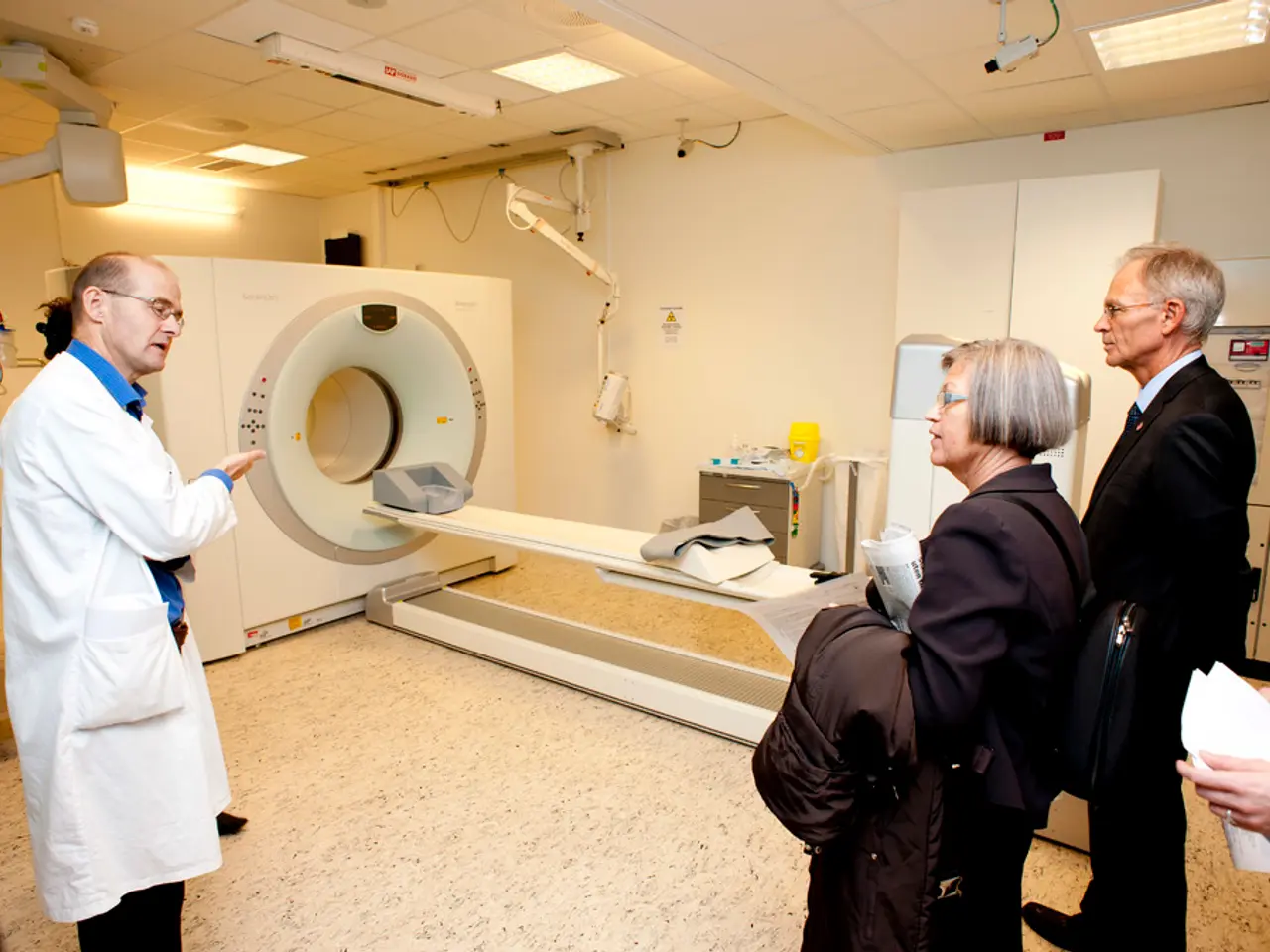Impact of Doctors' Five-Day Strike on National Health Service Unveiled
The British Medical Association (BMA), representing resident doctors in England, has agreed to a "window for negotiations" with Health Secretary Wes Streeting following a recent five-day strike over pay and working conditions.
The discussions, aimed at improving working lives and pay for resident doctors while minimizing impacts on NHS patient care, are ongoing. Both parties express a greater mutual understanding than in previous talks, with the doctors emphasizing the need for fair pay, adequate job availability, and the delivery of previously agreed non-pay improvements.
The BMA has been open to negotiations throughout the dispute and remains committed to finding a resolution. The co-chairs of the BMA's Resident Doctor Committee, Dr Melissa Ryan and Dr Ross Nieuwoudt, have expressed a willingness to return to the negotiating table.
The current status of the dispute primarily revolves around pay. Mr. Streeting has stated that there is no money for an increase in pay, but he has suggested that negotiations could lead to improvements in the working lives of resident doctors.
The strike involved resident doctors, who are doctors working in hospital and community health services. Approximately 77,000 resident doctors, making up about half of all doctors in the NHS, participated in the strike.
NHS chief executive Sir James Mackey stated that a repeat of the strike would be unacceptable for the affected patients. He urged the Resident Doctor Committee to return to the negotiating table and work with the government on improving resident doctors' working lives.
The strike ended recently, on Wednesday morning. While most patients received treatments as planned, NHS chief executive Sir James Mackey acknowledged that thousands of patients' care was disrupted. However, the NHS maintained care for an estimated 10,000 more patients during the recent strike compared to last year.
Health Secretary Wes Streeting expressed gratitude to NHS staff for their efforts during the strike. He also acknowledged that the strikes came at a cost to patients, other staff, and the NHS.
The BMA holds a legal mandate for potential further strikes until January 2026, but currently no future strikes are planned. The BMA hopes the Secretary of State is now clear that a credible offer must be brought to the table to achieve a settlement and prevent further strike action. The BMA is clear on what is needed to settle the pay dispute.
The overall number of resident doctors who walked out during this strike was 7.5% less than the previous strike in late June last year. This decrease in participation may indicate a growing resolve to find a solution through negotiation.
The BMA, NHS, and the government now have an opportunity to work together and find a resolution that benefits both the healthcare professionals and the patients they serve. The aim is to prevent further disruption to NHS services and ensure fair pay and adequate working conditions for resident doctors.
- The ongoing negotiations between the BMA and Health Secretary Wes Streeting aim to improve working lives and pay for resident doctors, addressing mental health, workplace wellness, and health-and-wellness concerns.
- The discussions about policy-and-legislation, including pay increases, are crucial in minimizing the impacts on NHS patient care during the negotiations, considering the recent five-day strike.
- In the context of this dispute, politics plays a significant role given that the BMA holds a legal mandate for potential further strikes until January 2026 and is pressing for a credible offer to prevent additional work stoppages.
- The general-news coverage of this issue highlights the needs of resident doctors seeking fair pay while ensuring quality care for NHS patients, with ongoing negotiations providing an opportunity for all parties to work together towards a resolution.




